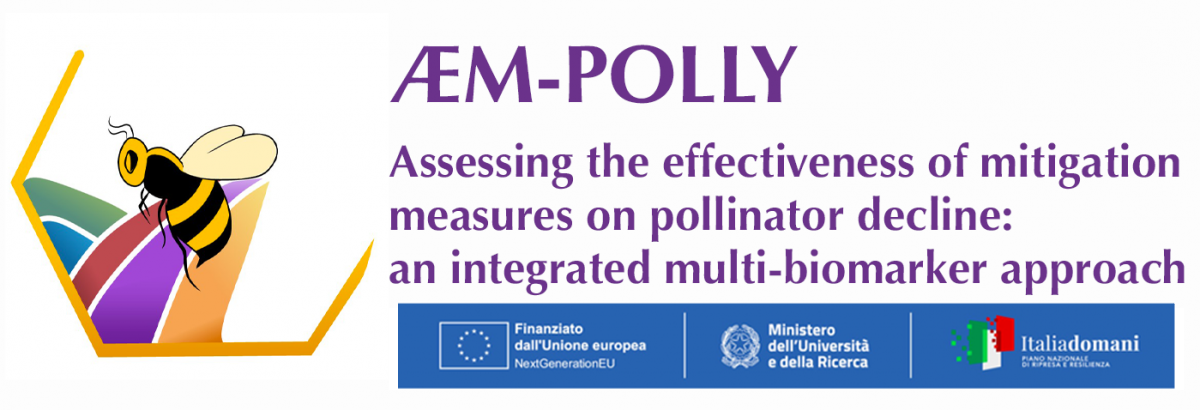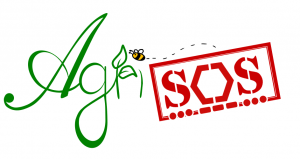
Silvia Casini
Associate Professor – Principal Investigator of the ÆM-POLLY project
Read more
silvia.casini@unisi.it
 Ilaria Caliani
Ilaria Caliani
Researcher
Read more
caliani4@unisi.it
 Tommaso Campani
Tommaso Campani
Researcher
Read more
campani@unisi.it
 Agata Di Noi
Agata Di Noi
Technologist
Read more
agata.dinoi2@unisi.it
 Laura Giovanetti
Laura Giovanetti
Post-Doc
Read more
laura.giovanetti@unisi.it
 Ginevra Manieri
Ginevra Manieri
Fellow
ginevra.manieri@student.unisi.it
 Andrea Franchi
Andrea Franchi
Fellow
a.franchi13@student.unisi.it
Since 2012, Prof. Silvia Casini, directs the research group of the DSFTA-University of Siena in Sustainable Agriculture.
The Team consists of Prof. Silvia Casini, Dr. Ilaria Caliani, Dr. Tommaso Campani, Dr. Agata Di Noi, Dr. Laura Giovanetti, Dr. Ginevra Manieri and Dr. Andrea Franchi.
The activities of “AgriSOS” research group are focused on the application of an ecotoxicological approach to assess the environmental impact of agricultural practices. One of the main purposes is the development of monitoring protocols and interpretative models of the levels of ecotoxicological risk for the natural populations of rural areas.
Specific research in progress:
- Evaluation of the sub-lethal effects of environmental contaminants on Apis mellifera and other insect pollinators.
This research line is aimed at evaluating the sub-lethal effects of contaminants of agricultural and urban origin on bees, through an approach based on biomarkers able to provide information on the potential alterations of different physiological pathways, such as: neurotoxicity, biotransformation systems, oxidative stress, DNA damage, immune system impairments, cellular stress. Laboratory studies are carried out to develop biomarkers for the evaluation of the toxicological effects of commercial pesticides (fungicides, herbicides, insecticides) and other anthropogenic contaminants, individually and in combination. Field ecotoxicological monitoring of honeybees and other pollinator insects are also carried out.
The main projects that are running at the moment are:
- “Assessing the effectiveness of mitigation measures on pollinator decline: an integrated multi-biomarker approach (ÆM-POLLY)”. A PRIN – PNRR 2022 project, Mission 4 “Education and Research”, Component C2, Investment 1.1, funded by European Union – NextGenerationEU and Ministero dell’Università e della Ricerca, under the National Plan for Recovery and Resilience (PNRR). The project started in November 2023 and ends in November 2025. ÆM-POLLY aims to develop and validate an integrated protocol as a tool to verify if the mitigation measures foreseen by the EU Green Deal for agricultural practices, are effective in halting and reversing the decline of wild pollinator biodiversity. This monitoring protocol will integrate endpoints in terms of presence, abundance and diversity of wild pollinator species with endpoints able to assess the health status at the sub-individual, individual and population level.
- “Polypoll – An interdisciplinary approach to unravel the effects of combined exposure to chemical pollutants on insect pollinators”. A PRIN 2022 project, Mission 4 Education and Research, Component C2, Investiment 1.1 and financed by European Union – NextGenerationEU and Ministero dell’Università e della Ricerca. The project started in October 2023 and ends in October 2025. POLYPOLL project aims to elucidate the molecular mechanisms underlying pollinators’ responses to chemical stresses and to develop early diagnostic tools for assessing their health through multi-biochemical analyses and cellular biomarkers. Additionally, the project seeks to advance knowledge about the role of the intestinal microbiome in pollinators and how chemical pollutants affect it. Overall, POLYPOLL is designed to establish a robust scientific foundation for more accurate environmental risk assessments, thereby contributing to the sustainability and health of agricultural ecosystems and supporting pollinator populations.
- “Agricoltura Polifunzionale Integrata (API)”. Fundend by PSR Toscana 2014 – 2020 – Measure 16.2 – Annuality 2022. The project started in March 2024 and ends in Dicember 2024. The API project aims to develop an exportable model of an integrated and multifunctional farm, able to combine beekeeping and crops through a synergy aimed at diversifying the profitability of farms, optimising production and including the exploitation of by-products.
2. Assessment of the potential toxicological risk related to the disposal of the by-products of olive oil production (vegetation water and wet pomace) on soil and freshwater organisms with a view to bio-remediate and reuse these by-products in agroecosystems.
3. Evaluation of the presence of chemical contaminants and biotoxins in short chain products.
4. Toxicological effects of fungicides and other pesticides on non-target soil organisms.
This line of research aims to evaluate the potential toxic effects of the various fungicides used in agriculture on non-target soil species (e.g. Eisenia fetida).
5. Non-invasive ecotoxicological investigations on avian species.
This research line aims to conduct an ecotoxicological monitoring on bird species (e.g. Falco tinnunculus and Parus major) by applying a multi-biomarker and multi-level (from biochemical/cellular to population) approach and to investigate the influence of environmental changes and multi-stressors on the physiological state of avian species.

